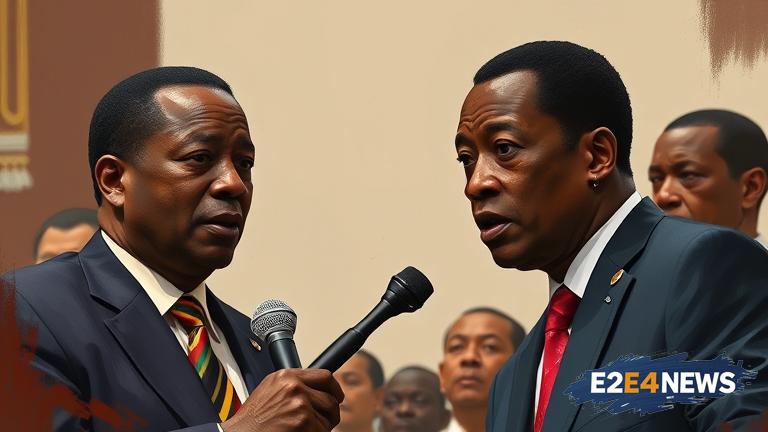In a move that has sent shockwaves throughout the Zambian political landscape, a court in the country has refused to hear an appeal by former President Edgar Lungu. This decision has significant implications for the nation’s democratic processes and has sparked intense debate among political analysts and citizens alike. The appeal in question pertained to a matter of great importance to Lungu and his supporters, and the court’s refusal to hear it has been met with a mixture of disappointment and outrage. Lungu, who served as the President of Zambia from 2015 to 2021, has been a central figure in the country’s political scene for many years. His presidency was marked by both achievements and controversies, and his legacy continues to be a subject of discussion among Zambians. The current political climate in Zambia is complex, with various factions and interests vying for power and influence. The court’s decision is seen by many as a significant development in this context, potentially altering the balance of power and setting a precedent for future legal and political battles. The Zambian judiciary has faced scrutiny in the past for its independence and impartiality, and this decision will likely be closely examined by both domestic and international observers. The implications of the court’s refusal to hear Lungu’s appeal are far-reaching, with potential consequences for the rule of law, democratic governance, and the stability of the country. As Zambia continues to navigate its political challenges, the international community will be watching closely to see how the situation unfolds. The country has a long history of democratic transitions, but the current tensions highlight the ongoing struggles to consolidate democracy and ensure the protection of human rights and the rule of law. The reaction from Lungu’s supporters has been vocal, with many expressing their dissatisfaction with the court’s decision. On the other hand, opponents of the former president have welcomed the ruling, seeing it as a vindication of the legal process and a step towards accountability. The Zambian government, led by President Hakainde Hichilema, has been working to address various challenges facing the country, including economic difficulties and social inequalities. The political opposition, including Lungu’s party, has been critical of the government’s policies and actions, leading to a highly polarized political environment. In this context, the court’s decision on Lungu’s appeal takes on added significance, as it reflects the complex interplay between legal, political, and social factors in Zambia. The country’s media has been filled with analyses and opinions on the matter, reflecting the deep interest and concern among the public. As the situation continues to evolve, it is clear that the court’s refusal to hear Lungu’s appeal will have lasting impacts on Zambian politics and society. The international community, including organizations and countries that support democracy and human rights, will be closely monitoring developments in Zambia. The role of the judiciary in ensuring the rule of law and protecting democratic principles will be under scrutiny, and the actions of political leaders will be judged against the backdrop of this significant legal decision. In conclusion, the Zambian court’s decision to decline hearing former President Lungu’s appeal is a pivotal moment in the country’s political history, with far-reaching implications for democracy, stability, and the rule of law. As Zambia moves forward, it is essential that all stakeholders, including political leaders, the judiciary, and civil society, work towards upholding democratic principles and ensuring that the legal process is fair, transparent, and accountable to the people.





